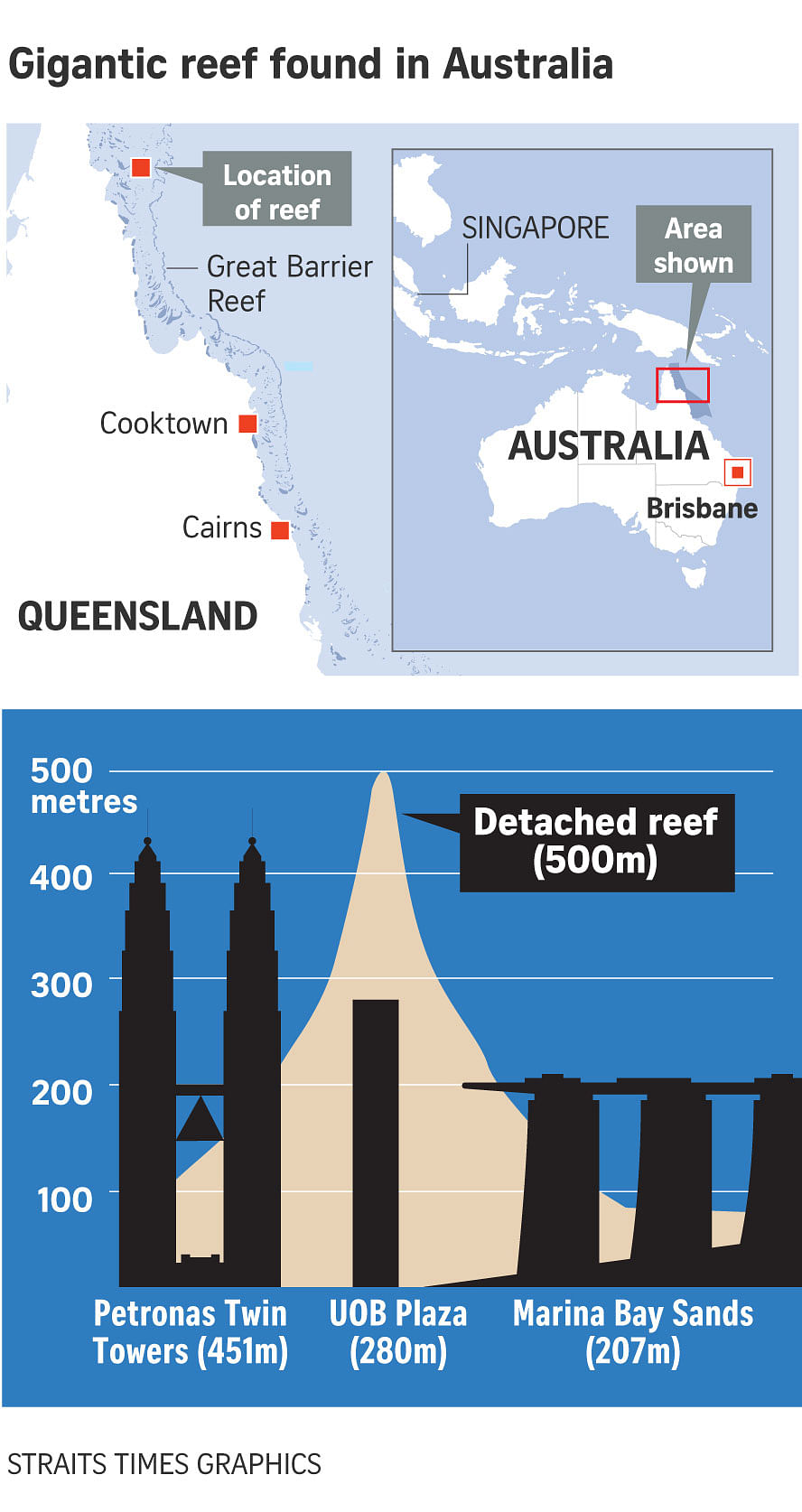SYDNEY • Scientists have launched the largest attempt to regenerate coral on the endangered Great Barrier Reef by harvesting millions of the creatures' eggs and sperm during their annual spawning.
The researchers said yesterday that they plan to grow coral larvae from the harvested eggs and return these to areas of the reef which have been badly damaged by climate-related coral bleaching.
"This is the first time that the entire process of large-scale larval rearing and settlement will be undertaken directly on reefs on the Great Barrier Reef," said Professor Peter Harrison of Southern Cross University, one of the project leaders.
"Our team will be restoring hundreds of square metres with the goal of getting to square kilometres in the future, a scale not attempted previously," he said in a statement.
The "Larval Restoration Project" launch was timed to coincide with the annual coral spawn on the reef, which began earlier this week and will last only about 48 to 72 hours.
Coral along large swathes of the 2,300km reef have been killed by rising sea temperatures linked to climate change, leaving behind skeletal remains in a process known as coral bleaching.
Prof Harrison cautioned that the reseeding project will not be enough to save the reef. "Climate action is the only way to ensure coral reefs can survive into the future," he said.
The researchers, who also include experts from James Cook University and the University of Technology Sydney (UTS), said a novelty of their reseeding project was to grow coral larvae together with microscopic algae. The two live in symbiosis on the reef.
In Indonesia, over a third of the country's coral reefs are in bad condition, scientists from Indonesian Institute of Sciences said on Tuesday. The precarious state of the coral reefs was revealed after a survey of 1067 sites across the sprawling country of more than 17,000 islands.
AGENCE FRANCE-PRESSE


